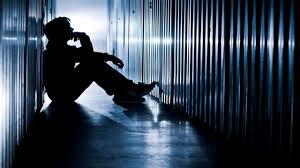It is a well-established fact that depression can be hereditary, and some people are more prone to have depression than others. Sometimes depressive episodes can be triggered by certain life events in individuals with no previous history of depression. Depression can also be linked to some other medical problems as well. However, people rarely put allergies and depression together.
Can Allergies Cause Depression?

The answer to this question is yes, allergies can lead to depression. Allergies to various chemicals and foods can badly affect the mood and behavior in susceptible individuals, and can cause depressive illness in three ways.
1. Allergic Symptoms
The symptoms of allergy such as red and itchy eyes, constant sneezing and sniffing can be a nuisance and are generally persistent. It becomes very difficult to breathe easily or have peaceful sleep with a blocked and stuffed nose. This can be exhausting, making people with allergies twice more likely to get depressed as compared to those who are not allergic to anything.
2. Its Effects on Central Nervous System
Allergies and depression are related. One of the reasons is that allergies can affect any system of the human body and the central nervous system is no exception. Allergies can slow down the thought process, leading to irritability and agitation. The effects of allergies on central nervous system can also lead to learning disabilities, aggressive behavior, nervousness, anxiety, schizophrenia and depression.
3. Biological Connection
Allergy can cause specific cells in the nose to release cytokines which are inflammatory proteins. These cytokines have certain effects on the brain and can lead to increased sleepiness and poor concentration. What's more, cytokines can also trigger feelings of sadness and malaise, which makes people more likely to be depressed.
How to Deal with the Depression Caused by Allergies
Allergies and depression have to be treated separately. Though the depression will be improved when the allergic symptoms are under control, treatment for depression should not be ignored.
1. Treatments for Allergies
- Avoidance of Allergens: The best strategy to deal with allergies is to avoid the allergens. The triggers need to be identified and avoided.
- Medication for Symptoms: Allergic symptoms like runny nose, red eyes and itching can be controlled by taking anti-allergy medications. These medicines, including prescription or over the counter tablets, syrups, eye drops and nasal sprays, can reduce the intensity and severity of these symptoms.
- Saline Nasal Irrigation: Nasal irrigation with sterile saline or salt solution is a very effective way to open a blocked nose. Specifically designed irrigation bottles or bulbs are available, and you can make the saline solution by mixing some salt in boiled and cooled water. Rinse your nose a few times every day. Thoroughly clean and dry the equipment afterwards to avoid infection.
- Reduce Exposure to Dust Mites: Dust mites also trigger allergies, so it is a good idea to get rid of them along with pet dander. Wash your bedding in warm water frequently, and replace carpets with hard flooring if possible. Using vacuums with fine filters is also helpful.
- Reduce Moisture: Keep humidity levels as low as possible. If there are any leaks or damp places in your home, get them fixed. Keep the bathroom and kitchen dry, and use ventilation fans and dehumidifiers if possible.
2. Treatments for Depression
Talk Therapy
Allergies and depression should be treated separately. One of the best treatments for depression is talking to a trained therapist. There are various ways to have this therapy. Some people find it helpful to have the therapy for a few weeks or months and focus on key issues; while for others, long term therapy is more beneficial. You and your therapist will decide how long you need this therapy together. Common types of the talk therapy are:
- Cognitive Behavioral Therapy: Identification of your thinking pattern and how you behave in certain situations is crucial. Your therapist can then guide you to alter these patterns and this can lead you to the path of recovery.
- Interpersonal Therapy: The way you deal with other people and how their behavior affects you are identified and corrected in this form of therapy. Your therapist can suggest better ways to interact with people around you to improve your mental health.
- Problem Solving Therapy: As the name suggests, the key problem that you are facing is identified and a solution is worked out. There may be more than one problems, and these will be identified and resolved one by one.
Medications
Medicines are very effective to treat depression. You can have a combination of medication and therapy for excellent results. There are many kinds of anti-depressants, so if one does not work for you, your doctor can prescribe you another one. The dose can be adjusted according to your response and sometimes more than one medicine is required for maximum results.
Tricyclic antidepressants (TCAs), selective serotonin reuptake inhibitors (SSRIs), monoamine oxidase inhibitors (MAOIs) and norepinephrine reuptake inhibitors (SNRIs) are examples of some effective anti-depressants.
Here is an article talking about can depression be cured and what you can do to deal with depression.
